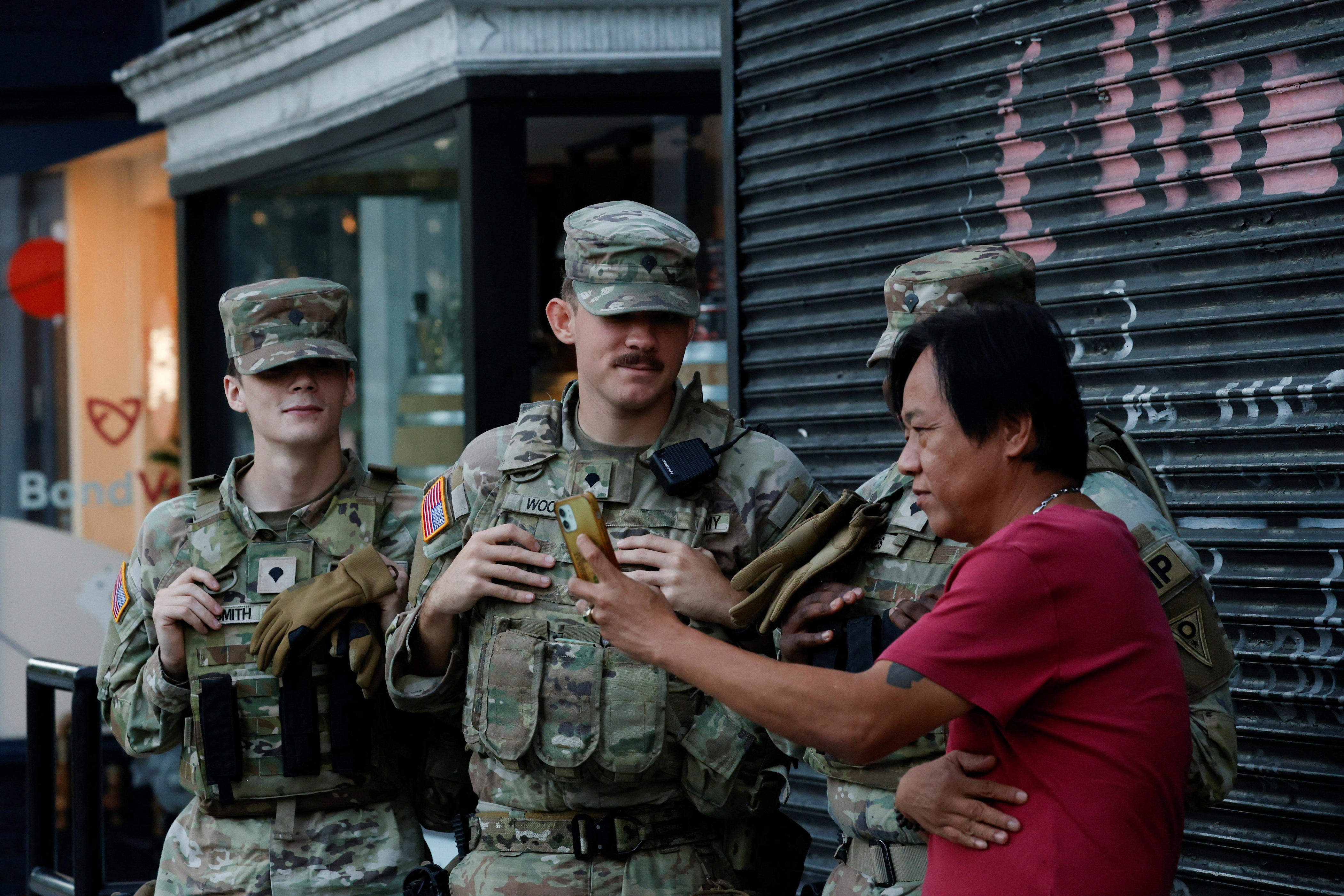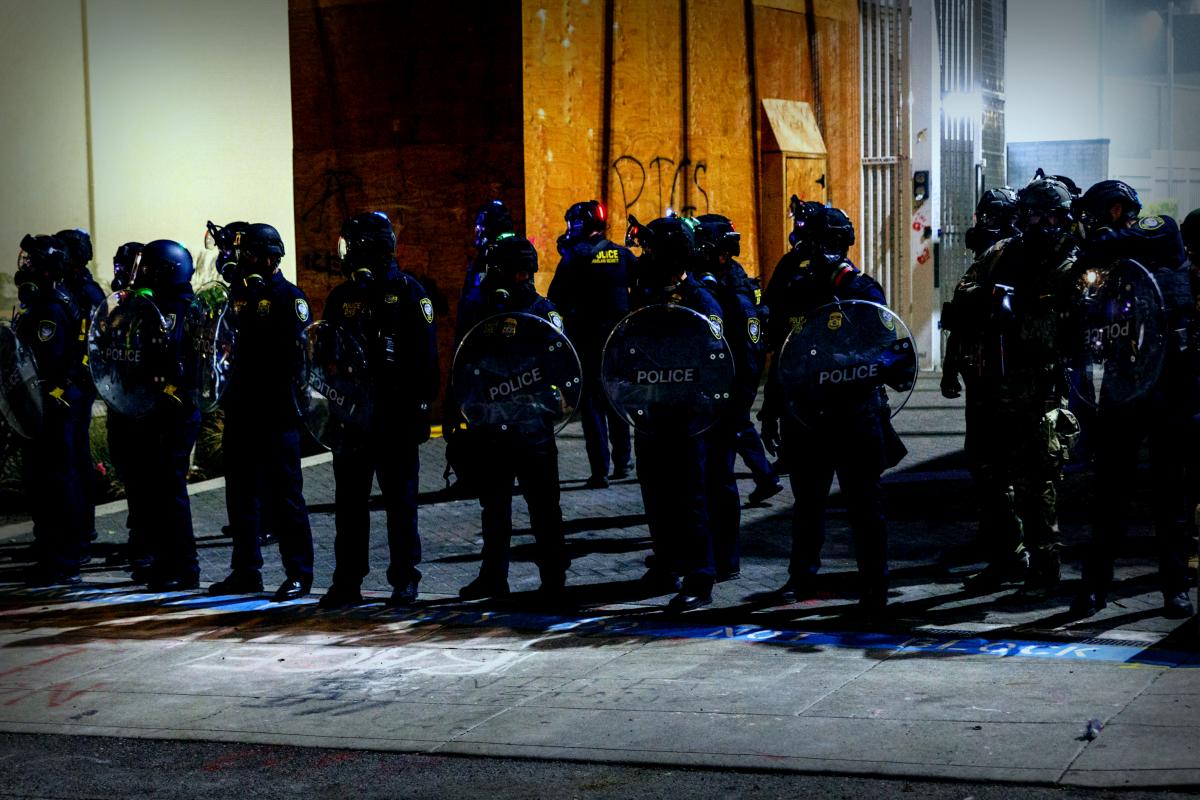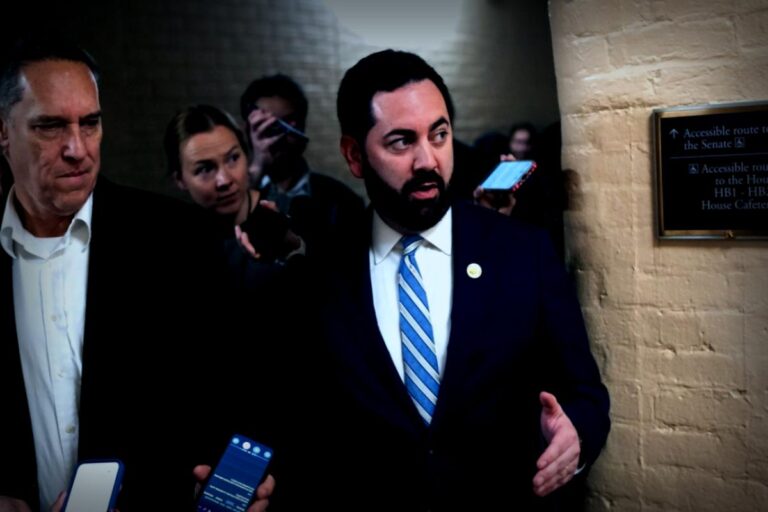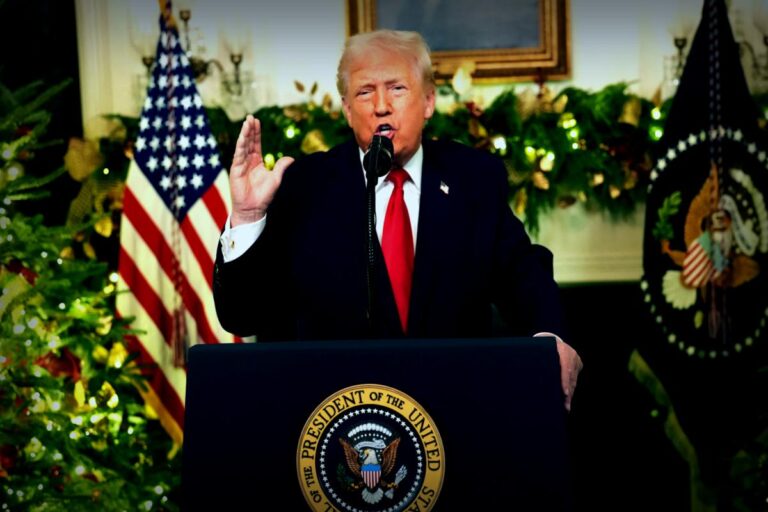WASHINGTON – President Donald Trump announced he’s deploying troops to Portland, Oregon, with the aim of protecting ICE facilities from unrest. This marks another instance of military presence in an American city.
In a recent post on Truth Social, Trump declared that he instructed Defense Secretary Pete Hegseth to ensure a strong military presence in Portland to safeguard from protests he describes as attacks by Antifa and other domestic extremists. He emphasized that the military could act with “Full Force if needed.”
The specifics of the troop deployment—whether they’ll be active-duty troops or National Guards—remain unclear, as neither the White House nor the Pentagon provided clear answers when questions were raised.
This decision comes after weeks of protests at the ICE office in South Portland, fueled by opposition to Trump’s immigration policies that lead to mass deportations. These demonstrations have sometimes escalated into clashes, resulting in law enforcement deploying tear gas.
As of September 8, the U.S. Attorney’s Office reported that federal charges had been filed against 26 individuals for various offenses, including arson and assaulting police officers, as per a White House official’s comments on condition of anonymity.
‘No Need for Federal Troops in Oregon,’ Says Governor
Local officials quickly condemned Trump’s military action during a press conference in downtown Portland shortly after his announcement. Oregon’s Governor Tina Kotek underscored that during her discussions with Trump and Homeland Security Secretary Kristi Noem, she made it clear that local authorities are equipped to handle public safety themselves.
She stated emphatically, “There’s no insurrection occurring and no threat to our national security. Portland is far from the ‘war zone’ Trump describes. We do not want federal troops here creating unnecessary fear or conflict in a situation we have under control.”
Kotek has also indicated that she might consider legal action against Trump’s administration, as she does not believe he has the constitutional authority to send federal troops to her state. She is collaborating with the state’s attorney general to determine any necessary actions in response.
Portland’s Mayor Keith Wilson stated that military intervention is unwarranted, asserting, “If President Trump were to visit Portland today, he’d notice people cycling, playing sports, soaking up the sun, and shopping at a farmers market—no lawlessness to be found.” He remarked that this troop deployment seems more like a performance than a genuine need.
U.S. Senator Ron Wyden, D-Oregon, recently shared a video on X showcasing Portland’s ICE facility, highlighting the peace outside, with only a few joggers visible.
He addressed Trump directly: “You’re not needed here. Stay out of our city,” Wyden urged.
Details about Deployment Remain Unclear
Nationwide, protests and confrontations between federal agents and demonstrators at the ICE office in Portland have been common, leading to multiple arrests in recent months. During a press conference on September 26, local officials encouraged residents to remain calm amid the reported increases in federal law enforcement.
The White House did not clarify what Trump meant when he referred to deploying military forces with “Full Force.”

DHS Assistant Secretary Tricia McLaughlin stated they will not allow domestic terror groups to threaten law enforcement.
The Pentagon reiterated that military forces are on standby at the president’s command, ensuring that updates will be provided as they come.
Democratic leaders in Congress plan to oppose Trump’s decision to send troops. Senator Chuck Schumer voiced his concern, saying, “Portland does not require federal troops; this place is not in shambles. Trump cannot wield military force as he pleases.”
Despite sporadic violence, protests in front of the ICE facility have generally remained peaceful, although tensions flare between police and community members.
In an earlier Sept. 26 news release, the DHS cited occurrences throughout June when protests reportedly turned invasive against the ICE center.
Several arrests were made for serious actions, including a case where an individual aimed a laser pointer at ICE agents and another one allegedly threw objects during a riot.
The tension has reached a boiling point, with various ICE agents subjected to harassment and threats.
Trump’s previous deployments have met resistance, especially in major Democratic-run cities, except for Memphis, where the local Republican governor welcomed the increased presence.
The rhetoric has grown harsher lately; Trump expressed his view of Portland’s environment as being “like living in hell,” hinting that troop deployment was being contemplated, similar to threats made towards Chicago and Baltimore.
Amidst rising political violence—the result of frictions often linked with the “radical left“—Trump hinted at ongoing operations, vowing, “We will make significant moves against those in Portland.” He depicted them as “professional agitators and anarchists.”
This article was originally published by USA TODAY: Trump Deploys Troops to Portland: Local Leaders Push Back



















